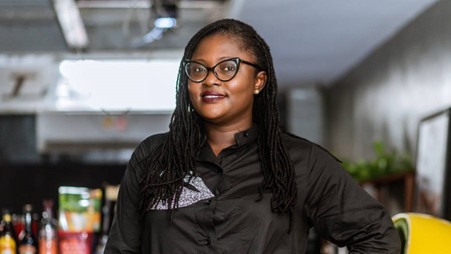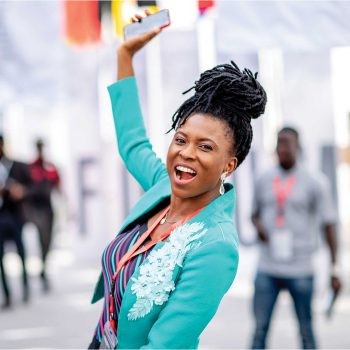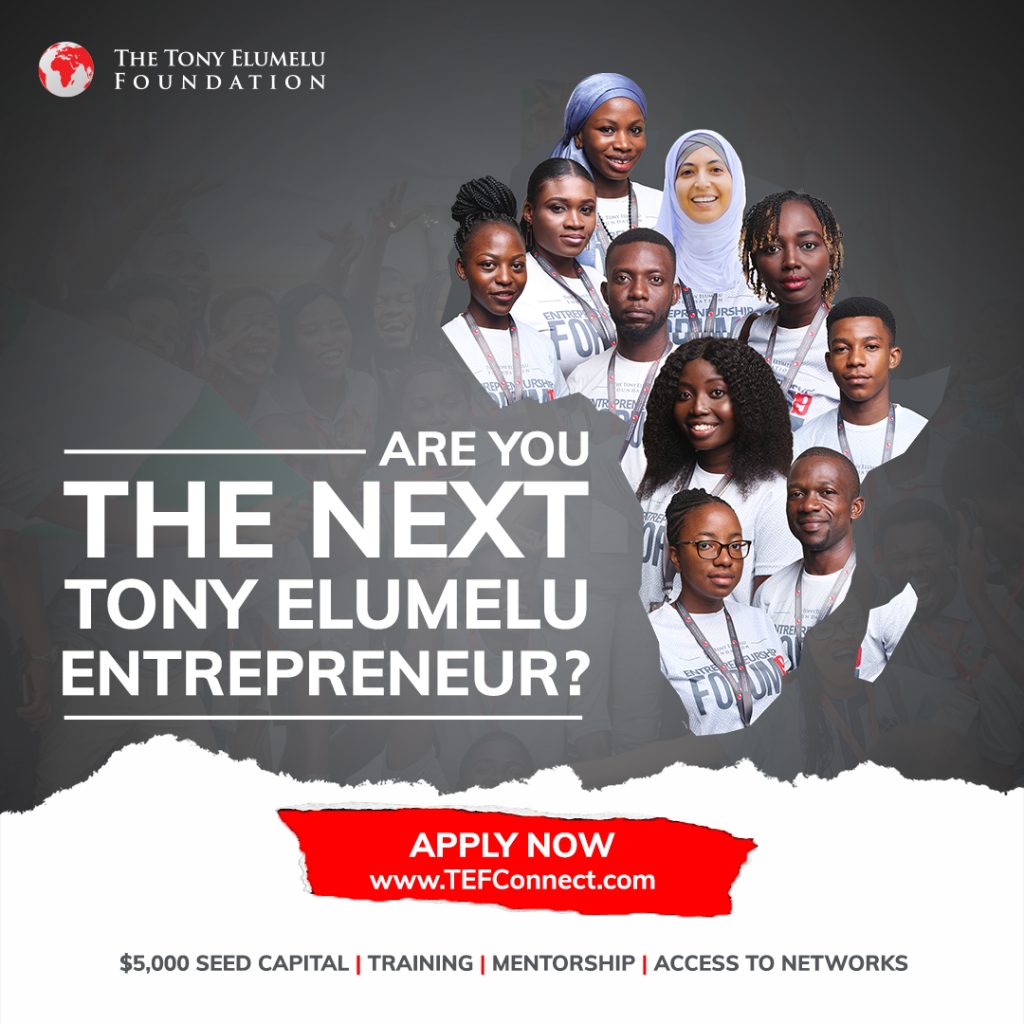
The Gendered ROI Measuring the Economic Return on Investing in Women Founders
For decades, investing in women has been framed as philanthropy, a moral gesture, a soft quota, an act of equity. In Africa today, the evidence tells a sharper story: investing in women founders is not charity, it is strategy.
When women receive capital, they generate more jobs per dollar, reinvest more in households, and build more resilient businesses. The real question is no longer why invest in women, but why would any rational economy not?
The Investing in Young Businesses in African Women Entrepreneurship for Africa (IYBA-WE4A) programme, spearheaded in partnership with the European Union, the Organisation of African, Caribbean and Pacific States (OACPS), and implemented by the German Development Agency (GIZ) and the Tony Elumelu Foundation (TEF), provides one of the clearest test cases to date. By combining seed capital, capacity building, and digital learning through TEFConnect, IYBA-WE4A has channeled millions of dollars into women-led businesses across the continent. The results are no longer anecdotal. They point to an investable thesis: gender lens entrepreneurship delivers measurable, outsized returns not only for women, but for labour markets and national economies.
Framing Investment in Women as an Economic Imperative
Too often, investment in women entrepreneurs is justified in the language of equity or moral duty. While justice matters, the economic evidence is stronger still. Global studies from the IMF and McKinsey have consistently shown that narrowing gender gaps in labour force participation could add trillions to global GDP. Yet these figures often remain abstract, detached from the lived realities of African markets where informality is high, finance is scarce, and education systems are misaligned with demand.
IYBA-WE4A grounds this global debate in empirical reality. In 2021, over 798 African women-led enterprises received USD $3.99 million in grant funding under the programme. Each beneficiary received $5,000 in non-refundable seed capital, accompanied by capacity-building training, mentoring, and in some cases follow-on catalytic investments of up to €50,000 for high-growth firms. These grants, though not vast by macroeconomic standards, have yielded disproportionate impact creating jobs, expanding revenues, and building market linkages across the continent.

Entrepreneurship as Human Capital Policy
The Tony Elumelu Foundation has long argued that entrepreneurship is not peripheral to Africa’s labour markets; it is the labour market.
Women have been central to the TEF story. 46% of all TEF beneficiaries are women, and within the IYBA-WE4A programme specifically, the figure is 100%. Our data shows that each TEF beneficiary with an active business creates an average of 13 jobs, and that employees in these firms earn three times the national per-capita income. Over half of their workforce are women and youth. Profits average 22 times national income per capita, and 64% of these businesses support other SMEs as suppliers and vendors.
These are not peripheral gains. They illustrate entrepreneurship as a system of human capital formation: every grant dollar is simultaneously training a founder, formalising jobs, raising wages, and building domestic supply chains.
The WE4A Multiplier
The outcomes of WE4A demonstrate how seed capital, when targeted at women founders, multiplies across multiple dimensions:
- Job Creation: Beneficiaries consistently report new hires within 12–18 months of receiving capital. Women-led firms are more likely to employ women and youth, creating a virtuous cycle of inclusion.
- Revenue Growth: Internal monitoring shows many WE4A enterprises doubling revenues post-intervention, with profits channelled into reinvestment and expansion.
- Social Spillovers: Women entrepreneurs tend to reinvest earnings into household education, healthcare, and community development. This indirect impact is harder to quantify but significantly strengthens human development outcomes alongside economic ones.
The cost-per-job and return-on-investment (ROI) of funding women founders compares favourably with many large-scale infrastructure or vocational training schemes. Put differently, if an economist were to run a benefit–cost analysis, entrepreneurship support for women would not only clear the bar of social justification but outperform many conventional policy levers.
Case Narratives: Grounding Data in Lived Enterprise
Numbers alone cannot convey the systemic patterns. Micro-narratives from WE4A beneficiaries illustrate how gendered ROI plays out on the ground.
- Kenya – Dial a Pad is transforming access to feminine hygiene and reproductive healthcare through tech-enabled solutions. Founded to address period poverty, the platform combines a mobile app offering e-commerce and telemedicine with locally manufactured, IoT-enabled sanitary towel dispensers. Backed by the Tony Elumelu Foundation, Dial a Pad has deployed its smart dispensers in schools across Kenya, where 7 in 10 girls miss school due to lack of menstrual products. To date, the initiative has reached over 10,000 school-going girls, enabled uninterrupted education and promoted good health and well-being for African girls and women.
- Uganda – Dromedic is tackling the critical shortage of essential medical supplies through smart logistics and technology. Founded to address the life-threatening unavailability of blood in Uganda, the platform combines data-driven inventory management with a digital discovery system that connects hospitals, patients, and doctors to blood banks and donors. With support from the Tony Elumelu Foundation, Dromedic ensures safe, fast, and affordable delivery of medical supplies—such as blood—within 45 minutes. So far, over 1,000 pints of blood and other vital items including oxygen cylinders, face masks, and vaccines have been delivered to more than 50 hospitals and communities across Uganda.
- Mauritius – Recycle Moi Africa’s 100% biodegradable sanitary napkins. Made from natural bamboo and corn fibre, and packaged in recyclable cardboard, the napkins are free from toxins, bleaches, latex, perfumes, and plastic—making them safe for sensitive skin and environmentally friendly. Recycle Moi operates through an innovative “mini factory” model that equips rural women to produce and distribute the pads within their communities. The initiative not only promotes sustainable health practices but also creates jobs and empowers women at the grassroots level.
- Nigeria – ORÍKÌ Group is Nigeria’s all-natural farm-to-skin brand combining luxury wellness with indigenous skincare. Founded to promote holistic beauty and wellness, ORÍKÌ operates a chain of luxury spas powered by its own line of potent, botanical-based products. Backed by the Tony Elumelu Foundation, the brand has grown to include 7 spas, 1 manufacturing division, and UNWIND by ORÍKÌ—Africa’s first tech platform offering wellness on demand. With global expansion underway through the ORÍKÌ Franchise, the brand continues to elevate African wellness, delivering relaxation, skincare, and empowerment from farm to face.
Each case illustrates the layered return: financial growth, job creation, social empowerment, and community resilience.
From Pilot to Policy: The Implications for Africa’s Labour Markets
By 2035, Africa will host the world’s largest working-age population. The demographic dividend will not materialise simply by building more schools or launching new vocational centres. It will depend on how effectively young Africans, and especially women, translate skills into livelihoods.
The Tony Elumelu Foundation’s approach demonstrates that entrepreneurship training extends far beyond launching startups, it is about creating decentralised skill-building systems that strengthen labour markets with resilience. Each entrepreneur becomes a hub of expertise, amplifying capabilities among employees, suppliers, and communities.
A Gendered Dividend, If Seized
The case for investing in women entrepreneurs is no longer simply moral or rhetorical. It is empirical and economic. WE4A demonstrates that women-led enterprises deliver superior returns across financial, social, and systemic dimensions. They create jobs at lower cost, pay higher wages, and reinvest in households and communities.
The Tony Elumelu Foundation has shown the world what is possible when women founders are given capital, training, mentoring, and access.
If scaled and embedded into policy, the gendered ROI of investing in women could well define Africa’s growth trajectory turning population pressure into shared prosperity.

